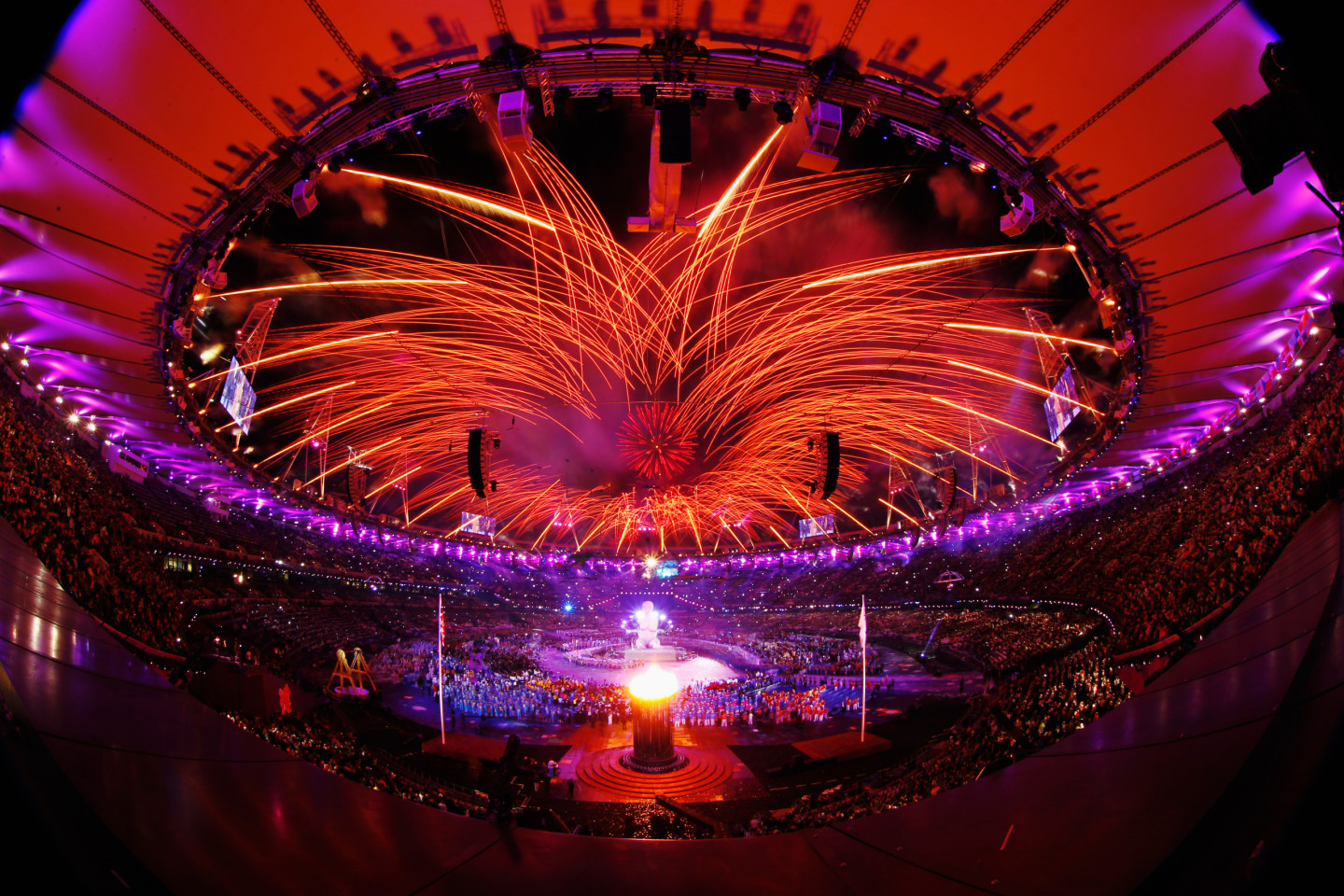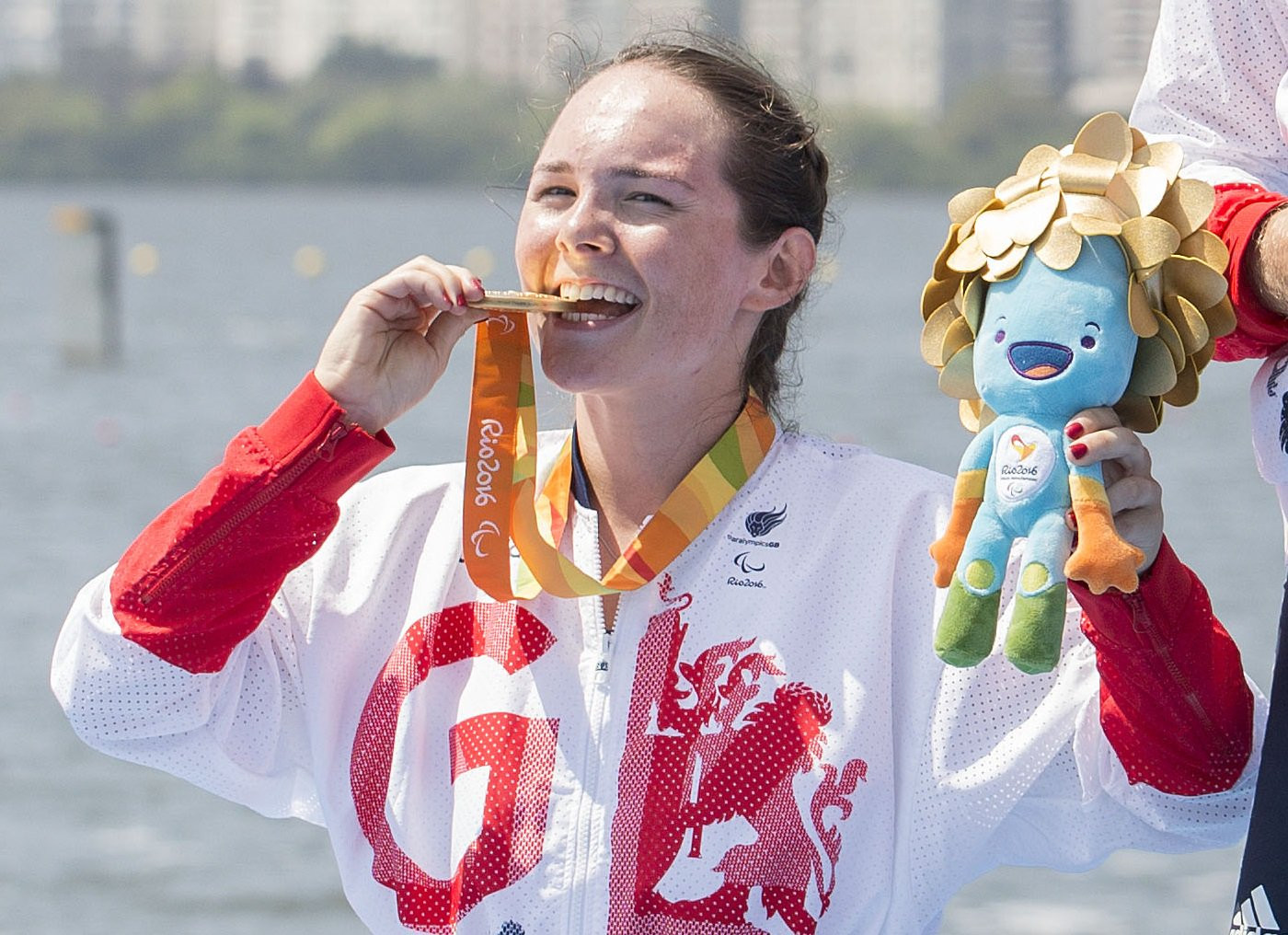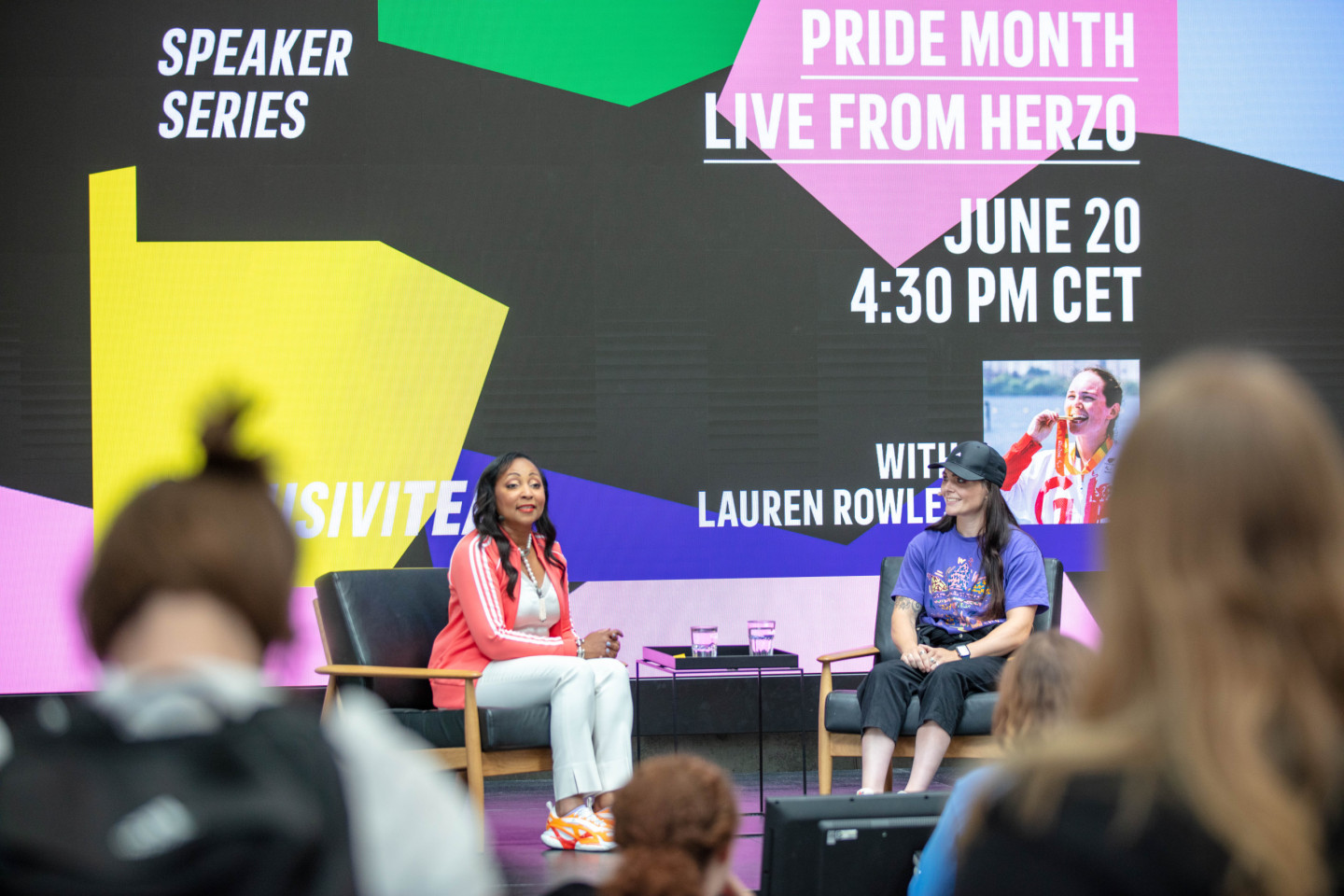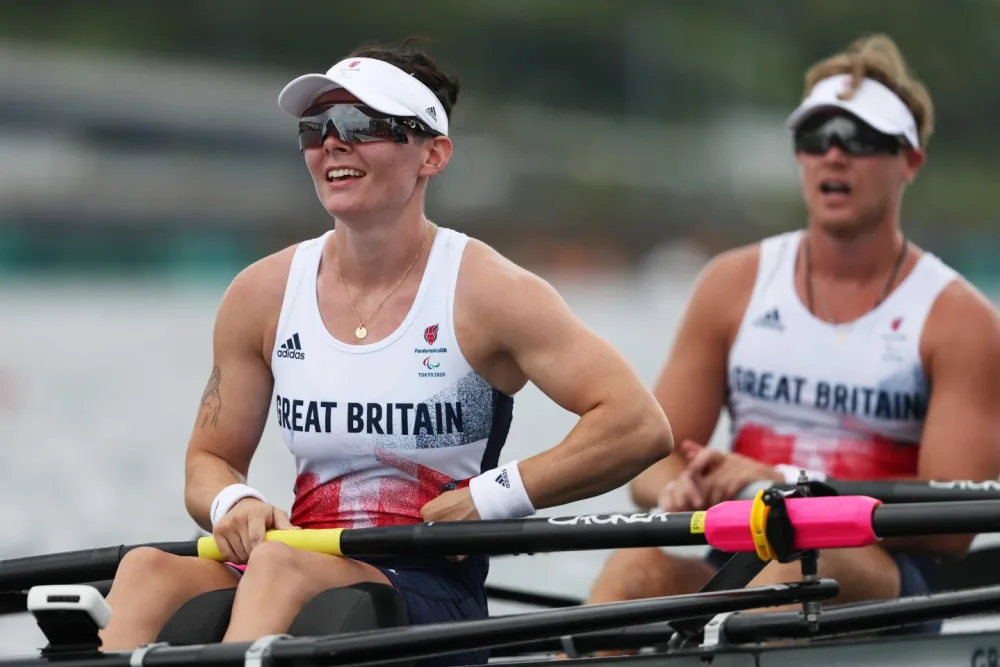
From Childhood Dreams to Paralympic Victory: Lauren Rowles Shares the Ups and Downs of Life After Crossing the Finish Line
This is the story of how Paralympic Rowing Champion Lauren Rowles found the determination to fulfill her childhood dream of becoming an Olympic athlete and beyond.

Imagine you’re five years old again, with dreams of superstardom, athletic prowess, or even goals of reaching the moon. As children we tended to dream big, convinced that one day our greatest ambitions might come to life.
Yet for many of us as we mature, our conviction fades, and with our courage long gone, the determination to follow our childhood dreams begins to wane.
Lauren Rowles is the exception to this rule.
Ask her what her childhood dream was, she will answer, “to be an Olympic athlete.” Today, she is not just that, she’s so much more. But Lauren’s path to success was far from simple; at the age of 13, she woke up one morning paralyzed from the waist down due to a rare neurological condition.
Now a two-time Paralympic rowing champion, Lauren works hard to shed light on the mental and physical challenges professional athletes face. She also advocates for greater LGBTQ+ visibility in sports, with the hope of inspiring the next generation of athletes.
I sat down with Lauren to find out how she achieved her dream of Paralympic victory, why athletes need more support when it comes to the topic of mental health, and how finding your purpose can provide new avenues for self-expression.
They may say you’re a dreamer
As children we dream big. Your biggest ambition was to be an Olympic athlete, and this was a dream you had from a young age. What was it that drew you to it?
“I was never academically talented at school. Sport was the one thing that I channeled my energy into.
“Since, I was really good at sports, this obviously boosted my confidence. It also helped shape my identity and let me express myself as a young kid. It just spiraled from there and I’m thankful that my mum pushed me into everything she could; I played rugby, I ran, I swam, I participated in loads of different sports.”
“It wasn’t until I got older that I decided to focus on just a couple of sports. I remember watching athletes like Kelly Holmes competing at the Beijing Olympic Games and it just stunned me how fast and athletic these women were.
"I remember watching athletes like Kelly Holmes and it just stunned me how fast and athletic these women were."
“Watching the games gave me a goal. I realized that you could do sport as a job, and I started to piece this together. At the time I even wrote in my diary that I wanted to be a runner at the Olympic Games. That was the dream.”
Come back stronger, braver, and more determined
Your life changed at 13 when you woke up paralyzed from the waist down. How did you come to terms with this and when did you see there was still a chance for you to live your dream?
“When I was growing up, I didn’t know any disabled people and the only perception I had of disability came from what I saw on the TV.
“At the time, the depiction of disabled people was that you would have a very lonely life and that you wouldn’t be independent. It didn’t paint a very good picture and I thought to myself, what kind of life is that? At 13, I thought my future looked bleak.
“For a few months, I was in rehabilitation at Stoke Mandeville hospital’s national spinal unit – although it felt much longer. It was the summer of 2012 – just before the London Paralympic Games and one of the nurses suggested to my mum that she gets tickets. At the time, I was really anxious in my wheelchair, I didn’t want people to see me, I was really ashamed and embarrassed.
“But I had been doing some Parasport as part of my rehab and my mum convinced me to go. That day, we went to watch blind football, swimming, tennis, wheelchair rugby (which was just savage), and so many other sports. I remember watching these things and I was blown away.
 Lauren's childhood dream was reignited after watching the 2012 London Paralympic Games. ©Mike Ehrmann/Getty Images
Lauren's childhood dream was reignited after watching the 2012 London Paralympic Games. ©Mike Ehrmann/Getty Images
“I genuinely never knew this existed. This whole world.
“I remember pushing into the park and I was amazed by how many disabled people there were and they were all living out their lives normally. It was completely different to how the media portrayed disability to be. I saw athletes do things I’ve never seen able-bodied people do. As I pushed out the park, I told my mum that was what I wanted to do.
“That one day reignited my childhood dream.”
"That one day reignited my childhood dream."
Hitting peak performance against all odds
Looking back, you’ve already achieved so much, including World and Paralympic gold. Is there one moment when you realized you were living your childhood dream?
“I guess the moment that I really realized things were real was when I made my senior debut at the Commonwealth Games. I competed for Team England in 2014 at 16 years old.
“I was the youngest member they’d ever had on the athletics team. I’d worked so hard to get to that point. I was on the team with some of the people I watched in Beijing, and it blew my mind.
“I competed in the 1500 meters in Glasgow. I’ve honestly never felt anything like it. Pushing out into that stadium, hearing people screaming and shouting… and the vibrations! At that point I was like, “wow, I’ve really made it.” I’d worked hard for the opportunity to be there, and I felt very grateful. Once you get that first taste of it, you don’t want to stop. That experience gave me the fire and the fuel to go on and qualify for Rio.”
You transitioned to rowing and won a medal at your very first Paralympics in Rio 2016. Did you expect to be so successful so early on in your career?
“I don’t think anyone ever goes to their first Olympic Games expecting to win. We’d never spoken about winning the whole time we were training. People talk a lot about winning and asking the universe to make it happen, but I think success is bred from work ethic. You work hard and then you’re confident in yourself. I don’t think you need to exclusively talk about the fact that you are going to win.
"I think success is bred from work ethic."
“We went out for our heat. We were up against the Chinese crew who were the champions at the time, and the Australians who had beaten us the year before at World Championships. We knew we had a hard heat, so we just went out and raced our own race and did our own thing.
“I started to get really nervous. Expectations were growing in the media and back home. But I was able to focus on what we had been doing in training. We came away with the world record. After that, it’s a whole different ball game.
“Staying at the top has been a completely different experience for me.”
"Staying at the top has been a completely different experience for me."
 After winning gold at the Rio Paralympic Games Lauren experienced what some athletes call the 'Olympic Blues'.
After winning gold at the Rio Paralympic Games Lauren experienced what some athletes call the 'Olympic Blues'.
Into the unknown: the ‘Olympic Blues’
You talk openly about your mental health following the success in Rio. How do you deal with the mental strain that many athletes come under?
“Lots of athletes talk about the ‘Olympic Blues’, and I found myself in this pit of “where do I go?” “What do I do next?” As athletes, we relentlessly chase the wins. We push the boundaries and break world records to become champions.
“After that, you find yourself catching up on the rest of what’s going on in your life and where the world is at, because you’ve been living in a cocoon.
“The day after I stepped off the plane from Rio, I went to university. I remember going to the lecture hall on my first day and I had this extra level of attention on me. The lecture hall was packed but no one would even talk to me. I felt so lonely.
“It was such a contrast in my life. One day I was taking part in parades, meeting the Queen, attending events, and the next I was at university feeling completely alone.”
"The lecture hall was packed but no one would even talk to me. I felt so lonely."
Your life journey has been full of extreme highs, and of course great challenges and trauma. How did that play into how you were feeling at the time?
“For a long time, I didn’t process a lot of the trauma. I’d gone from being able-bodied to being disabled overnight, to achieving childhood dream of becoming Paralympic champion four years later.
“After Rio, I became a very angry teenager. I felt angry about having a disability. I realized at that point I was going to spend the rest of my life in the chair. When I stepped back, I realized I had a lot of unresolved trauma that I needed to talk through. But I didn’t talk to anybody about it.
"I'd gone from being able-bodied to being disabled overnight, to becoming Paralympic champion four years later."
“As athletes, you’re strong. That’s what you’re taught. You don’t complain, you work hard. For Para athletes there is this idea that we’re all superhumans. You think, “I’ve been through more difficult things in my life, what’s a little bit of depression?”
“After the Rio Games, I became suicidal. I was in a really bad place. I wasn’t getting out of bed and I was also injured at the same time. I didn’t really know where to go from there. It got to the point where I hadn’t been home in ages. I was at living at university and my mum hadn’t heard from me in weeks.
“I remember she just turned up one day and came into my room. I hadn’t got out of bed in a week. The room was a tip, and I hadn’t showered in probably three weeks. It was awful, but that day she saved me.”
Find strength in vulnerability
What advice would you give to anyone who is facing a major life challenge or might be in a difficult place right now?
“I had to start unraveling what had been going on. I finally realized that I was not stronger than depression and anxiety, so I started seeing a therapist. You need to unpack the things that go on in your life in order to continue moving forward. I’ve been having therapy for years since and I don’t think people should be ashamed of reaching out for help.
“I’ve also recently been diagnosed with attention deficit hyperactivity disorder (ADHD) and that’s changed my life. It made me realize that the patterns of behaviors that I have, and the reason why I’m having these lows, is because I used training as my therapy.
“When I don’t train it’s bad for my brain, it’s really bad. Physically, I need a rest, but my brain suffers. Now I’m on a journey to find balance, because I don’t want to retire and have to be dealing with another situation where I feel like that.
"Now I'm on a journey to find balance."
“I want to start normalizing conversations, and when it comes to competitive sport there needs to be more support for athletes. The more structure we have in and around competitive sport, the better. The more athletes that talk about mental health, the more governing bodies become aware of the support that athletes need.”
Own your authentic self
How did coming out factor into your journey of recovery? And how did hiding this part of your identity feed into your sporting performance?
“After Rio I had anxiety about the way I looked. I was at that age when you start developing romantic interests. At that point I just realized, I wasn’t being authentic. I realized that I was interested in dating girls and I felt really ashamed about it.
"I think sport was my identity and anything that jeopardized that was a threat. I was really worried about how coming out would be perceived."
“In the process of talking to my therapist I started talking about my identity. Then I finally told her I had the feeling I was interested in girls. That was the first time I’d ever told anybody. It wasn’t until two years after I had that first conversation that I found the courage to tell other people.
“I realized hiding my identity was affecting my mental health. I knew at that point I had to make a decision and not fear what other people thought of me. It changed my anxiety massively. I wanted to be happy, and I realized that I deserved happiness as well. I realized sport is not everything.
“There was the Lauren that existed outside of sports that I needed to discover.”
"There was the Lauren that existed outside of sports that I needed to discover."
 After coming out Lauren has become a strong voice for the LGBTQIA+ community. She joined us at our global HQ to share how we can all be better allies.
After coming out Lauren has become a strong voice for the LGBTQIA+ community. She joined us at our global HQ to share how we can all be better allies.
Be an ally, be a friend
How can we help people feel more comfortable being their authentic selves, especially in the sporting arena?
“When it comes to sports, it’s about allowing athletes to express themselves for who they are outside of their sport. For a long time, athletes have just been seen as machines. Like you’re all the same. You’ve all got the same story, sell this story. Sport is your life. Don’t share anything else.
“I do think we’re moving into this generation where people can be confident in themselves and express their identity. This will go a long way to helping the LGBTQ+ community in sport. But, even within the Paralympic community, there are still members of the LGBTQ+ community that are marginalized, for example transgender athletes. Do I have all the answers? No I don’t, but I want to try and change the landscape so that a trans athlete can go out and win a gold medal.
"I feel safer being disabled than I do being Queer in sport."
“To do that, acceptance is key. We need to create a space in which everybody is included in sport. Unfortunately, we’ve got a long way to go until everyone is fully included. I feel safer being disabled than I do being Queer in sport.”
Dream big and find your purpose
Do you have a new dream that you're working towards? Is there something else in the pipeline that you've set your sights on?
“Of course I want to win again. No one’s ever won three Paralympic gold medal back-to-back in any rowing event in Paralympic sport. I’d be the first-ever person to do it.
“But I’m also at the stage of my career where I’m wondering if I can create an impact and leave a legacy. My mission and my purpose now is being able to go out there to share my story to make a difference.
“We should all be talking about leaving sport in a better place than you found it. I feel like I’ve contributed towards making Parasports more inclusive and that’s really fulfilling. I want to continue to be a voice within the LGBTQ+ community.
“That’s my vision now. It’s not a physical, tangible thing. I’m focused on winning, but I’m also focused on this wider thing of what gives me purpose, what fulfills me. In the end you hope that you can inspire someone to go down this sporting path and that they go on to do much greater things than you ever did.”
"We should all be talking about leaving sport in a better place than you found it."







